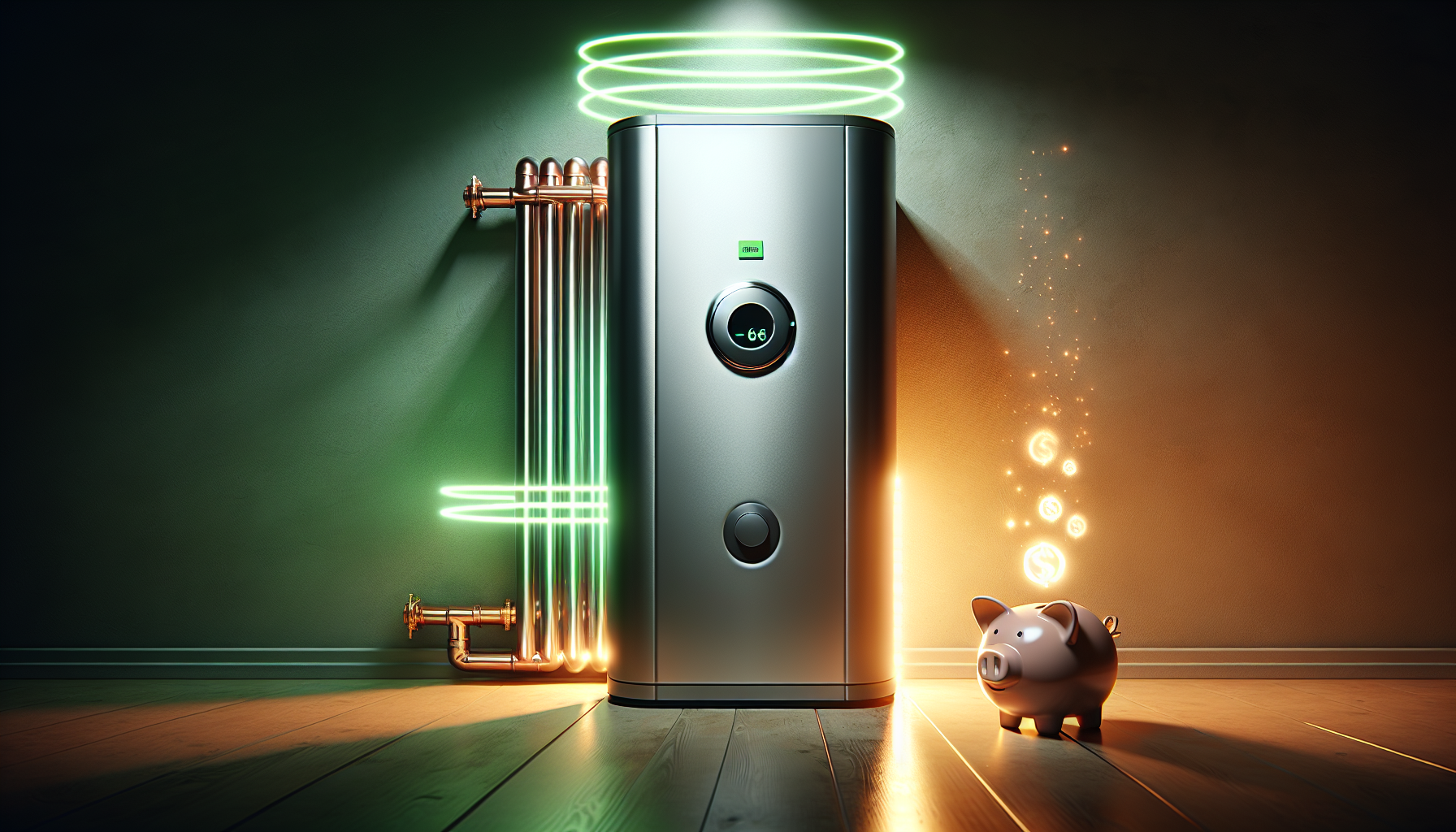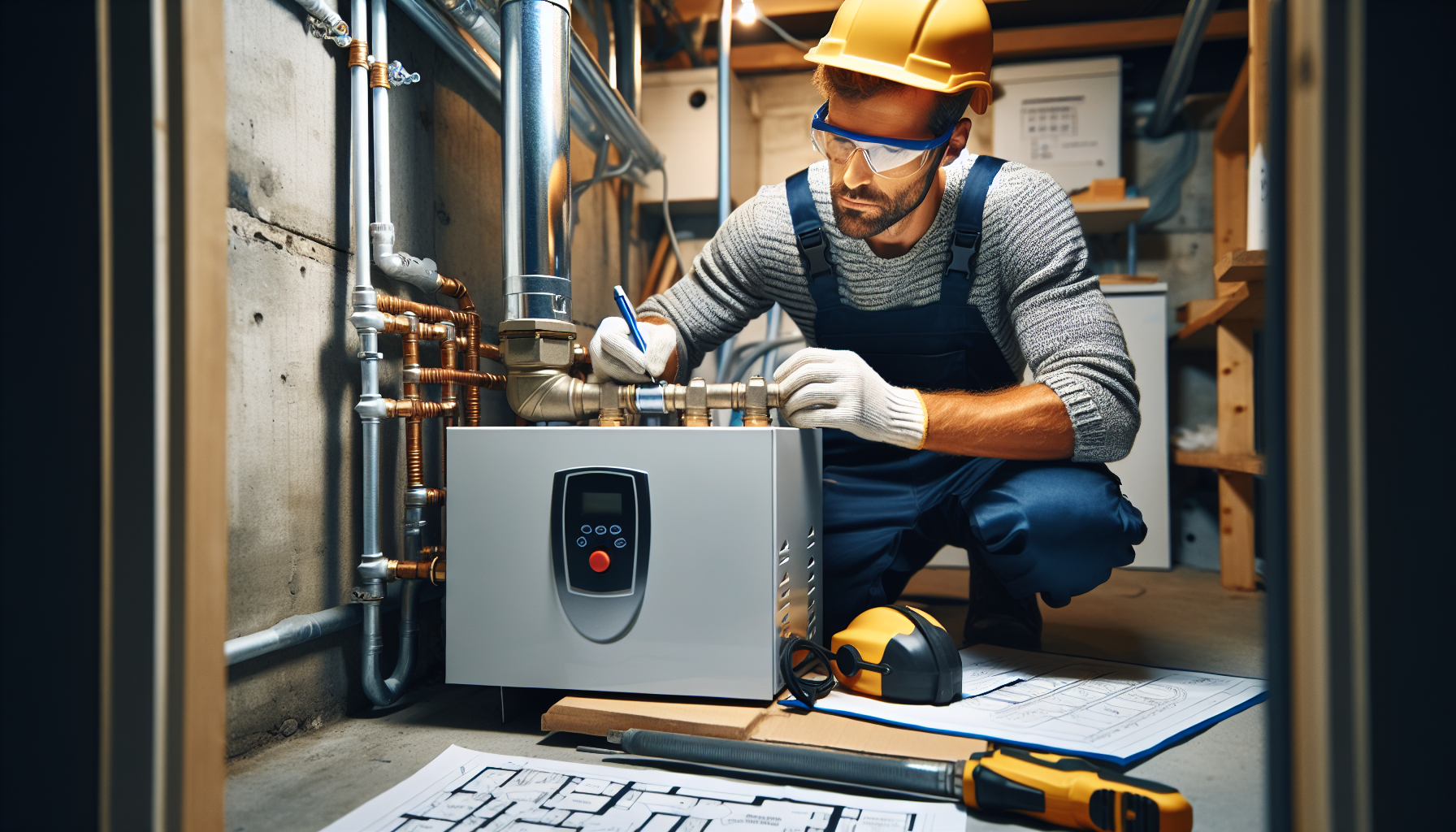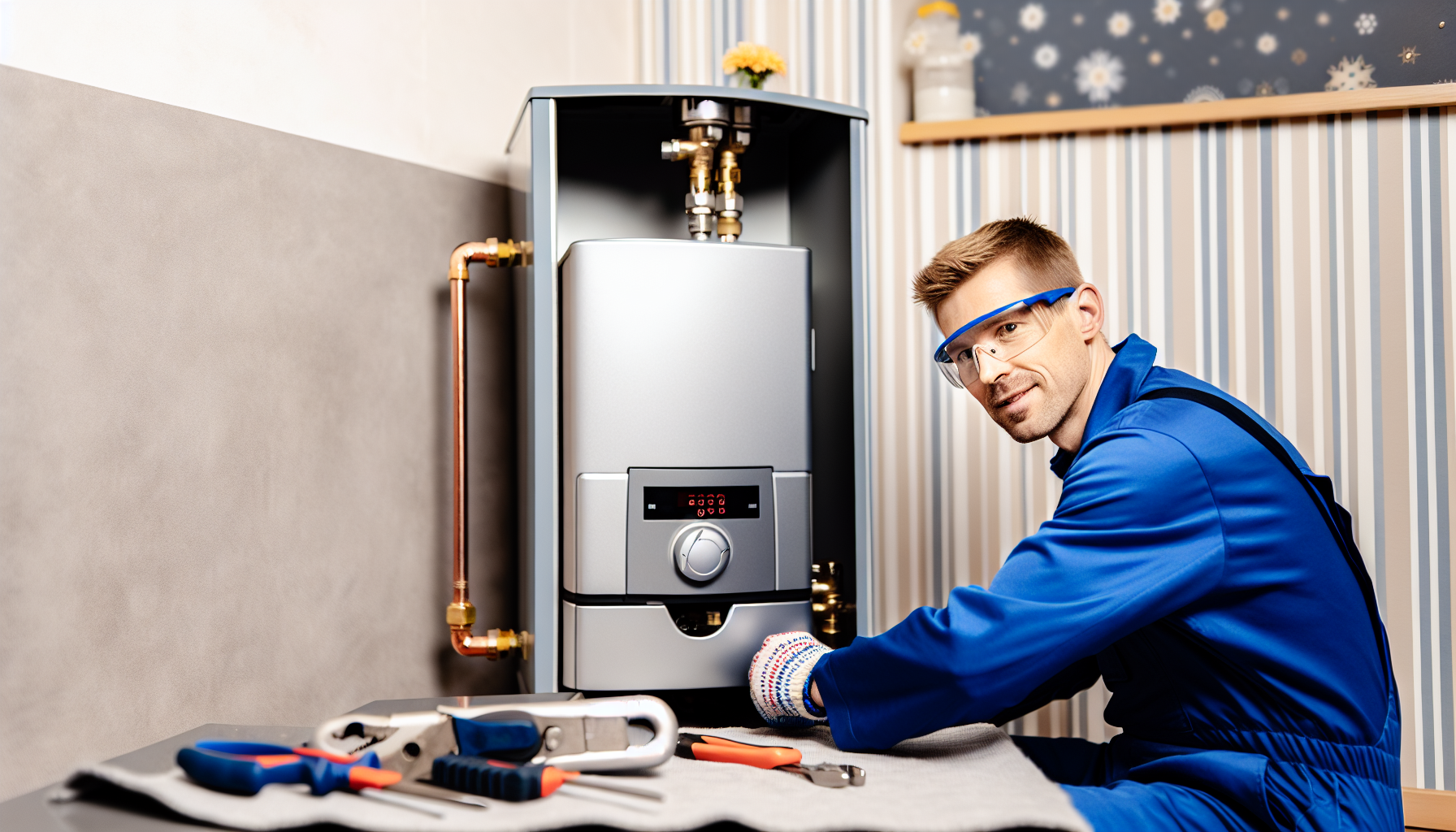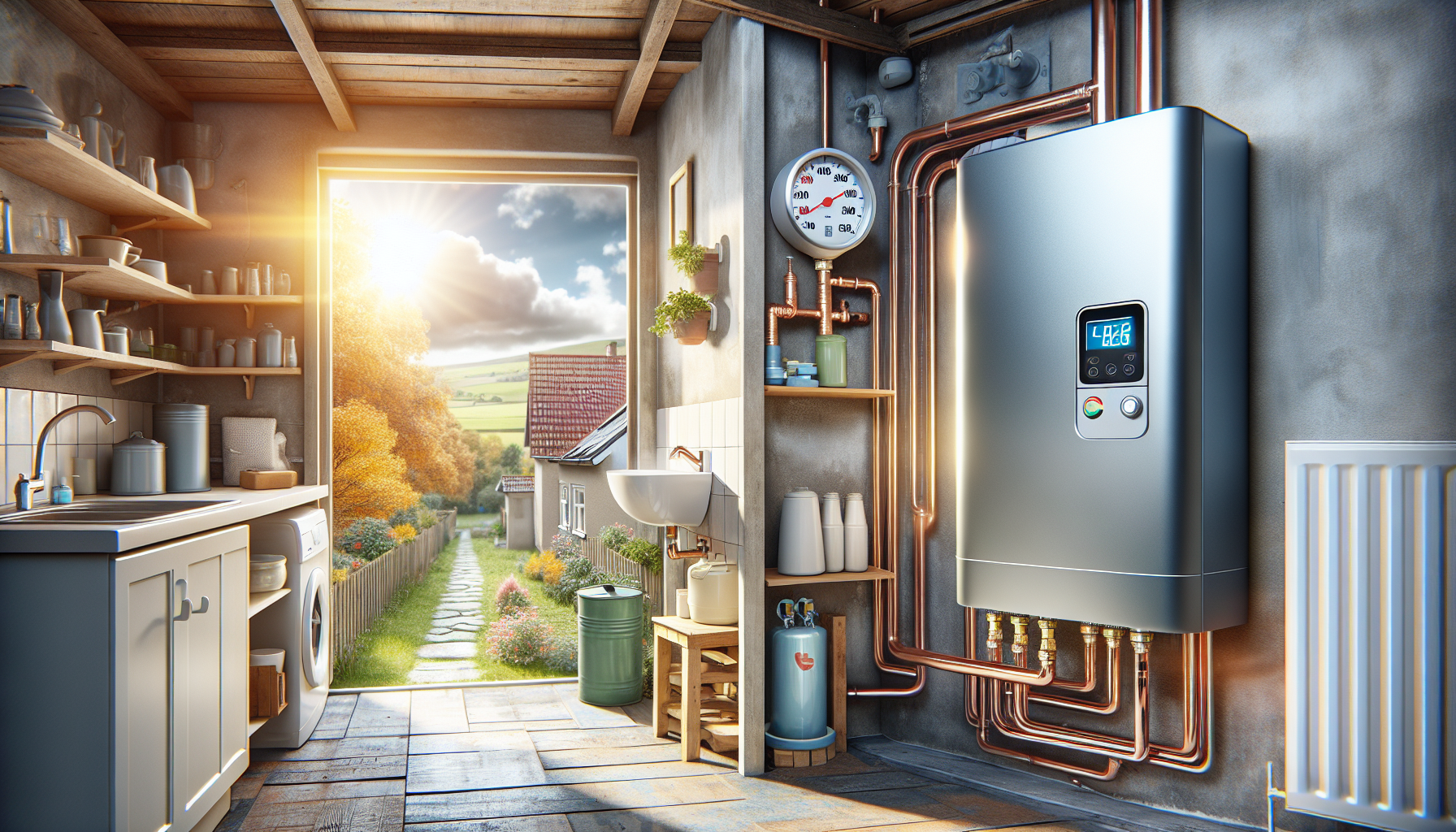Top-Rated Hot Water System Gas Options: Effortless Warmth for Your Home
Are you considering a hot water system gas option for its efficiency and cost savings? Gas hot water systems offer a reliable, energy-smart solution that can provide you with a constant supply of hot water, often at lower operating costs compared to electric alternatives. Say goodbye to cold showers and high energy bills. This article will navigate you through the ins and outs of gas hot water systems, helping you make an informed decision whether you’re upgrading, maintaining, or installing a new system.
Key Takeaways
-
Gas hot water systems are more energy-efficient than electric, have a lifespan of up to 12 years, and can save households approximately $750 annually.
-
Choosing the right gas hot water system depends on household size, hot water demand, and energy ratings, with larger star ratings indicating higher energy efficiency.
-
Professional installation and regular maintenance are essential for the safety, efficiency, and longevity of gas hot water systems, with potential incentives available to offset costs.
Discovering the Benefits of Gas Hot Water Systems

Get ready to explore the exceptional benefits of gas hot water systems. These systems are renowned for providing:
-
Efficient, reliable hot water delivery
-
A steady supply of hot water to households
-
Potential savings on power bills due to their more efficient energy consumption compared to electric water heaters.
To top it all, they have a lifespan of up to 12 years, which contributes to their overall efficiency and cost savings over time. Therefore, gas hot water systems are an ideal solution if you seek a durable source of hot water for your home.
How Gas Hot Water Systems Operate
Curious about how a gas hot water systems operates? Well, these systems use a gas burner that activates when a hot water tap is turned on, heating water as it flows through a heat exchanger. This ensures that hot water is available whenever you need it. They can be equipped with either a standing pilot flame or an electronic ignition and may be installed indoors with proper ventilation or outdoors.
Maintaining efficiency and preventing overheating of these systems heavily rely on the gas pressure and thermostat settings.
Advantages Over Electric Systems
Not only are gas hot water systems efficient, but they also have a smaller environmental footprint due to their higher energy efficiency, compared to conventional resistive electric systems. Moreover, they are about 30% cheaper to run than electric systems, saving approximately $250 annually when switching from an electric storage unit to a natural gas instant system or a gas hot water unit.
Gas hot water systems have several advantages over electric hot water heaters, including:
-
Faster heating of tanks
-
Potentially smaller storage tanks
-
More flexible hot water usage without time-of-use charges
-
Technological advancements that enhance recovery rate and energy efficiency
These benefits make gas hot water systems a popular choice for many households.
Choosing the Right Gas Hot Water System
Given the wide range of options available, selecting the appropriate gas hot water system can pose a challenge. However, making an informed decision based on several critical factors such as:
-
Household size
-
Demand
-
Recovery rates
-
Storage capacity
can make the task easier. Don’t overlook the evaluation of energy efficiency and upfront costs, as they significantly influence your system’s long-term savings and environmental footprint.
Size Matters: Matching System to Household Size
When it comes to gas hot water systems, size matters! The size of the system should be chosen based on the number of people living in the home and their hot water usage patterns. Factors like the number of bathrooms, additional kitchens, and other hot water-using appliances can significantly influence the size of the hot water system required to meet demand.
For a household of 1-3 people, a gas storage hot water system with a 90-liter storage tank might suffice, whereas an instantaneous system’s sizing is based on flow rates such as 16 L/min for one outlet.
The Role of Energy Ratings in Your Choice
While choosing a gas hot water system, the role of energy ratings cannot be overlooked. Energy star ratings of 4 or 5 stars on these systems indicate higher energy efficiency, signifying reduced energy consumption and lower utility bills. For instance, instantaneous gas hot water systems are generally more energy-efficient compared to storage systems, as they avoid storage-related heat losses and lower annual energy consumption.
Nonetheless, keep in mind that energy star rating labels on gas hot water systems are not currently regulated by the government, although Minimum Energy Performance Standards (MEPS) are under consideration to potentially mandate these labels and improve market efficiency.
Installation Essentials for Gas Hot Water Systems

After selecting the appropriate gas hot water system, the next step is installation. The installation process includes a clear description and preparation of the home, requiring a gas connection and a flue vent or pipe for a gas storage hot water system.
Adherence to safety precautions during installation is pivotal for household safety.
Preparing for Installation
Before installing your gas hot water system, you need to prepare your home adequately. Here are some steps to follow:
-
Choose a well-ventilated location close to plumbing and electrical connections.
-
Ensure there’s adequate space for routine maintenance and at least 12 inches of clearance on all sides.
-
Indoor installations may require additional venting or air supply.
-
Adhere to specific regulations like AS/NZS 5601.1 2013 for safe operation.
Also, evaluate the availability of natural gas or propane as fuel sources while considering the economic implications of the choice.
Professional Installation and Safety
While it may be tempting to install the gas hot water system yourself, professional installation by a licensed plumber is recommended to ensure proper ventilation and safety. Adhering to local building codes, regulations, and safely connecting gas and electrical components require professional expertise during installation.
Indoor gas hot water systems require a safe tray installation and strategic placement away from doors, windows, to prevent air pollution inside the home, necessitating professional installation. Professional installation also prevents hazards such as gas leaks, water leaks, electrical issues, or improper venting, highlighting safety as the paramount concern.
Maintenance Must-Dos for Long-Lasting Hot Water

Keeping your gas hot water system in prime shape is crucial once it’s operational. Regular maintenance is crucial to prolonging the lifespan of a gas hot water system and ensuring it remains efficient over time. Let’s delve into the specifics of routine checks and servicing, as well as troubleshooting common issues.
Routine Checks and Servicing
Proper maintenance can significantly increase the effective lifespan of gas hot water systems. Here are some tips for maintaining your gas hot water system:
-
Follow the manufacturer’s instructions for professional servicing to ensure the system’s longevity and efficiency.
-
Periodically check the temperature and pressure relief valve.
-
Continuously monitor the gas pressure in continuous flow systems.
-
Regularly inspect the system for any leaks or damage.
-
Clean the burner and heat exchanger to remove any buildup.
-
Flush the system to remove sediment and mineral deposits.
-
Insulate the hot water pipes to reduce heat loss.
-
Adjust the temperature settings to optimize energy efficiency.
By following these maintenance tips, you can ensure the performance and longevity of your gas hot water system.
Troubleshooting Common Issues
While regular maintenance can prevent most issues, it’s always good to be prepared to troubleshoot common problems that might arise. A blocked strainer valve or a broken thermostat can lead to low hot water pressure or lukewarm water. Pilot light issues might be due to an empty LPG gas bottle, a fault in the thermocouple, or insufficient combustible air.
For gas odor detection, take immediate safety measures including turning off the gas source, avoiding ignition sources, and contacting a professional.
Upgrading Your Home with a Gas Hot Water System

If you’re considering upgrading your home’s hot water system, gas hot water systems significantly improve energy efficiency and performance. However, before you install an instant gas hot water system, it’s important to consider several aspects, such as the lifespan and maintenance requirements of the new system.
Considerations When Upgrading
When upgrading to a new gas hot water system, several factors need to be taken into account. First, assess your household’s hot water usage, considering the number of people and bathrooms, as well as if multiple appliances will often require hot water simultaneously. Also, evaluate the local climate conditions, as they influence the heating demands and efficiency of the hot water system.
Finally, ensure a like-for-like replacement when practical for a more seamless transition and remember that professional installation may be required to validate the warranty of the hot water system.
Enhancements and Innovations
Modern gas hot water systems offer several enhancements and innovations, including:
-
Advanced temperature control features that allow for precise settings
-
Smartphone connectivity for remote monitoring and adjustment of system performance
-
Instantaneous hot water systems that offer a continuous supply of hot water on demand, leading to more energy-efficient usage.
Tankless indoor gas hot water systems are not only efficient but also compact, freeing up valuable space in the home for other uses.
Financial Aspects: Costs and Savings of Gas Hot Water Systems
Despite the numerous benefits of gas hot water systems, one can’t overlook their financial implications. The average cost to purchase a gas storage hot water system ranges from $800 to $1,800, while an instant gas hot water system can cost between $700 and $1,900. However, the running costs of gas hot water systems could increase due to rising gas prices, prompting consideration for high-efficiency or gas-boosted solar water heaters.
Initial Investment vs. Long-Term Savings
While investing in a new gas hot water system, considering the balance between the initial investment and potential savings from increased efficiency and lower operation costs is vital. The cost of a gas storage hot water system is influenced by quality, warranty, and efficiency, with installation expenses averaging around $130 per hour and potentially totalling around $300 if replacing a system in the same location.
Moreover, gas heating can be up to 30% cheaper than using off-peak electricity tariffs, resulting in long-term cost savings.
Incentives and Rebates
To offset the cost of upgrading to a more efficient system, you can take advantage of government incentives and rebates. The Australian Government, as well as state and territory governments, offer various rebates and incentives for households making energy-efficient upgrades, such as to hot water systems. Some of these incentives include:
-
Solar hot water rebates
-
Energy efficiency grants
-
Renewable energy certificates
-
Low-income household assistance programs
By taking advantage of these incentives, you can make your upgrade more affordable and contribute to a more sustainable future.
Programs like Small-Scale Technology Certificates (STCs) can reduce the upfront cost of renewable energy hot water systems, such as solar hot water system, for homeowners.
Diverse Range of Gas Hot Water Systems
The market offers a wide array of gas hot water systems, enabling you to select the one that suits your unique needs. Tankless gas hot water systems, known as instantaneous or continuous flow, heat water as it is needed without storing it, leading to energy savings since they eliminate the need to keep a large tank of water heated at all times.
Indoor and Outdoor Models
Whether you have ample indoor space or prefer to keep your system outdoors, there’s a gas hot water system for you. Indoor gas hot water systems can be installed in basements, garages, or utility rooms, while outdoor systems are built with durable exteriors to endure various weather conditions.
Leading Brands You Can Trust
When it comes to gas hot water systems, you can trust leading brands like:
-
Dux
-
Rinnai
-
Thermann
-
AquaMax
-
Bosch
-
Stiebel Eltron
-
Rheem
These brands are known for their reliable gas hot water systems and warranties that signify their assurance in the longevity and quality of their products.
Summary
In conclusion, upgrading to a gas hot water system can significantly enhance your home’s hot water supply while providing long-term savings. By considering factors such as household size, demand, energy ratings, installation requirements, maintenance, and financial implications, you can select the right gas hot water system for your home.
Frequently Asked Questions
What is the downside of gas water heater?
Gas water heaters have the downside of higher upfront costs, increased maintenance expenses, and installation costs, even though they lead to lower energy bills. Consider these factors before making a decision.
Is gas water heater better than electric?
Yes, gas water heaters are better than electric ones because they are more energy-efficient, heating water faster and running less often. This means they have lower overall energy consumption compared to electric models.
How long does a gas water heater last on average?
On average, a gas water heater lasts for 8-12 years. It's important to keep track of its age and consider a replacement if it's nearing the end of its lifespan.
What are the benefits of gas hot water systems?
Switching to a gas hot water system can offer you efficiency, reliability, and cost savings on your power bills compared to electric water heaters. They also provide a continuous supply of hot water and have a long lifespan of up to 12 years.
How do gas hot water systems operate?
Gas hot water systems operate by using a burner to heat water as it flows through a heat exchanger when a hot water tap is turned on. They can have a standing pilot flame or electronic ignition and require proper ventilation if installed indoors or can be installed outdoors.

























